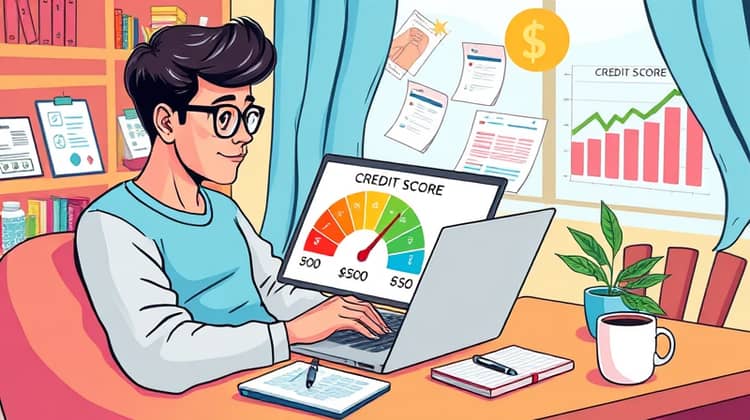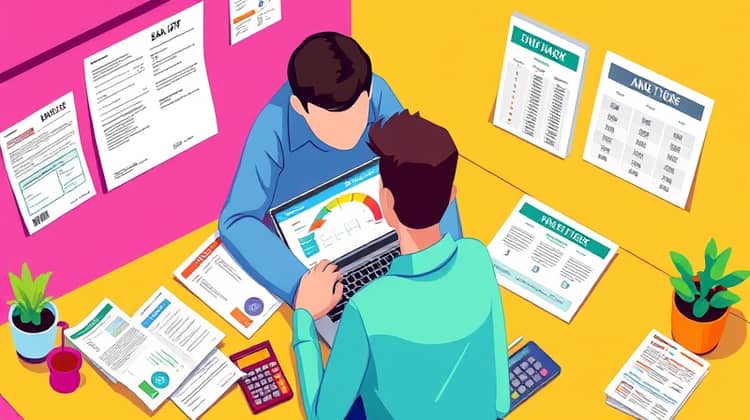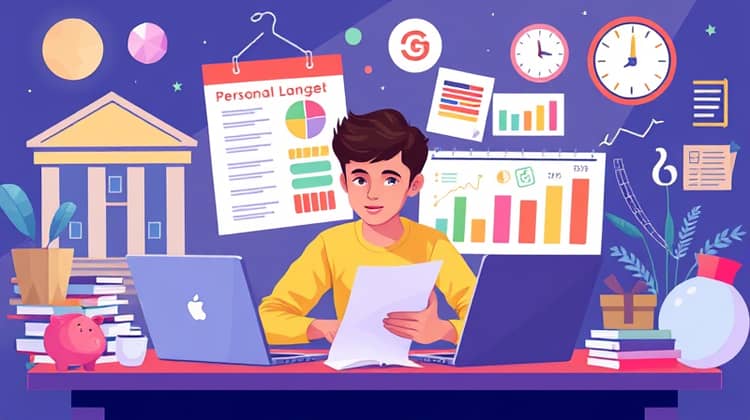In today's financial landscape, understanding how to build and improve your credit can significantly affect your financial options and opportunities. Personal loans are a useful tool in this process, especially if used wisely. They not only offer immediate assistance for various financial needs but can also play a pivotal role in establishing and enhancing your credit score when managed responsibly.
This article delves into personal loans and their dual purpose in providing financial relief while also serving as a potential springboard for credit improvement. We will explore credit scores, the nature of personal loans, and the best practices to leverage them for building a healthier credit profile.
Understanding Credit Scores and Reports

Credit scores are numerical expressions based on a level analysis of a person's credit files, representing the creditworthiness of an individual. Credit scores often range from 300 to 850, with higher scores indicating better creditworthiness. Understanding your credit score is fundamental as it can influence loan approvals, interest rates, and even job prospects.
Credit reports, on the other hand, are detailed records of an individual's credit history. A credit report includes personal information, credit accounts, payment history, and any outstanding debts. Lenders use your credit report to gauge your financial reliability, which is critical for any loan approval process.
Regularly reviewing your credit report enables you to spot errors that could negatively impact your score. It also provides insights into how other financial behaviors, such as the amount of credit you utilize and your payment history, shape your score over time.
Having a good credit score is essential for obtaining favorable terms on loans, credit cards, and mortgages. A higher score typically means lower interest payments, which can save significant amounts of money in the long run. Thus, understanding what impacts your credit score is crucial for financial planning.
It's important to note that credit scores can be affected by various factors, including your payment history, the length of your credit history, types of credit accounts, and recent inquiries. Monitoring these factors closely can provide the necessary steps to improve your credit score, making personal loans a valuable tool when managed wisely.
Personal Loans: An Overview

Personal loans are unsecured loans borrowed for a variety of reasons, including debt consolidation, home renovations, or emergency expenses. They typically offer lower interest rates compared to credit cards, making them an attractive option for those needing immediate cash.
When taking out a personal loan, borrowers receive a lump sum, which they must repay over a set period with fixed monthly payments. These loans usually range from a few thousand to tens of thousands of dollars, depending on the lender's terms and the borrower's creditworthiness.
To qualify for a personal loan, lenders will assess your credit score, income, and sometimes your existing debt levels. This means maintaining a good credit score through manageable debt levels is beneficial in obtaining better loan terms, including lower interest rates.
Utilizing a personal loan strategically can aid in better management of finances, particularly when consolidating higher-interest debts into one loan with fixed interest rates. Understanding the overall cost of borrowing and ensuring that payments fit within your budget is essential.
How Personal Loans Can Help Build Credit

Using personal loans can positively impact your credit score when managed correctly. Initially, taking a personal loan may cause a slight dip in your score due to a hard inquiry; however, consistent on-time payments can significantly boost your overall score.
Payment history is one of the most substantial factors that affect credit scores. Successfully repaying a personal loan can contribute positively to this factor, enhancing your score over time. Moreover, having a diverse mix of credit, including personal loans, can lead to improved creditworthiness as ratings agencies often look favorably on varied credit types.
Furthermore, taking out a personal loan and maintaining a low credit utilization ratio by keeping credit card balances low can lead to even greater improvements in your credit profile. This strategic use of personal loans can transform your financial future in many ways.
- Make on-time payments consistently to bolster your credit history.
- Keep your credit utilization ratio low by managing overall debt levels.
- Monitor your credit score regularly to track improvements and make timely adjustments.
Steps to Take Before Applying for a Personal Loan

Before applying for a personal loan, it's crucial to assess your financial situation critically. Understanding your current credit score can provide insights into what loan amounts and interest rates you may qualify for. Gathering relevant financial documents, such as pay stubs and tax returns, will streamline the application process.
Next, shop around for different lenders. Interest rates, fees, and terms can vary widely across lenders. Comparing these factors ensures that you find the most favorable loan option tailored to your financial needs.
Finally, consider prequalifying with lenders without impacting your credit score. Prequalification can help you gauge the types of loan offers you may receive and understand better how much you can afford. This preparation can make the entire loan application process more efficient.
- Assess your credit score and financial status thoroughly.
- Shop around by comparing different lenders and loan offers.
- Consider prequalifying with lenders to understand potential loan terms.
Best Practices When Using Personal Loans to Build Credit

When using personal loans to build credit, it’s vital to practice good financial habits. Acknowledging your repayment responsibilities and sticking to a budget can help ensure that you make your payments on time and avoid any potential pitfalls.
Additionally, treating personal loans as part of a broader financial strategy ensures you’re not taking on more debt than you can handle, helping to maintain a healthy credit profile.
- Create a budget that prioritizes loan repayment.
- Utilize personal loans only for necessary expenses or debt consolidation.
- Avoid taking out multiple loans simultaneously, which can strain your finances.
Potential Risks and How to Avoid Them

While personal loans can offer significant benefits, there are predicaments you must be aware of. There’s the risk of falling into further debt if loans are used irresponsibly, particularly if they are taken for frivolous expenses rather than essential ones. Clear budgeting and clear reasons for the loan can mitigate this risk.
Another potential risk is the impact on your credit score if payments are missed. Defaulting on a loan can severely damage your score and result in long-term financial ramifications. Setting up automatic payments or reminders can help you avoid these pitfalls.
Conclusion

Using personal loans effectively can benefit your credit profile and overall financial health when approached thoughtfully. By understanding credit scores, the workings of personal loans, and implementing best practices, it's possible to leverage these financial products positively.
In the realm of finance, knowledge is power. By educating yourself about credit and responsible borrowing, you set the foundation for better financial management and a brighter economic future.














